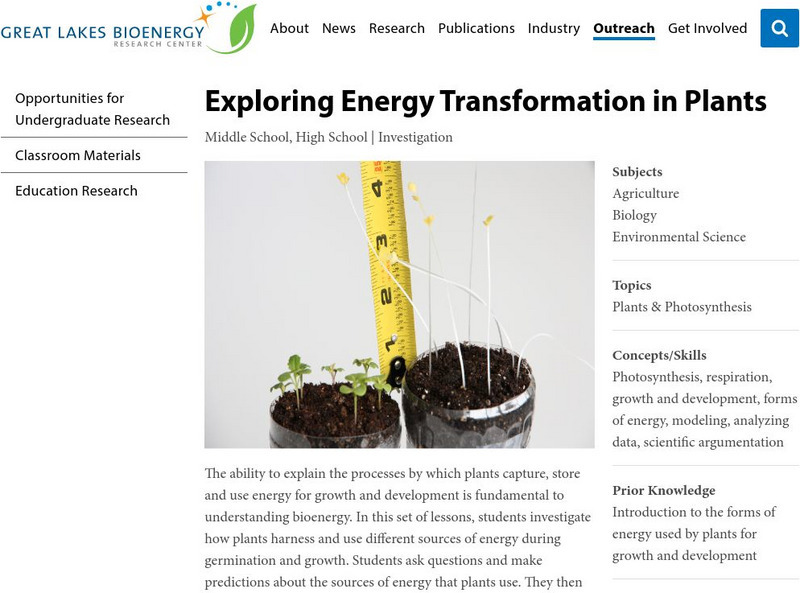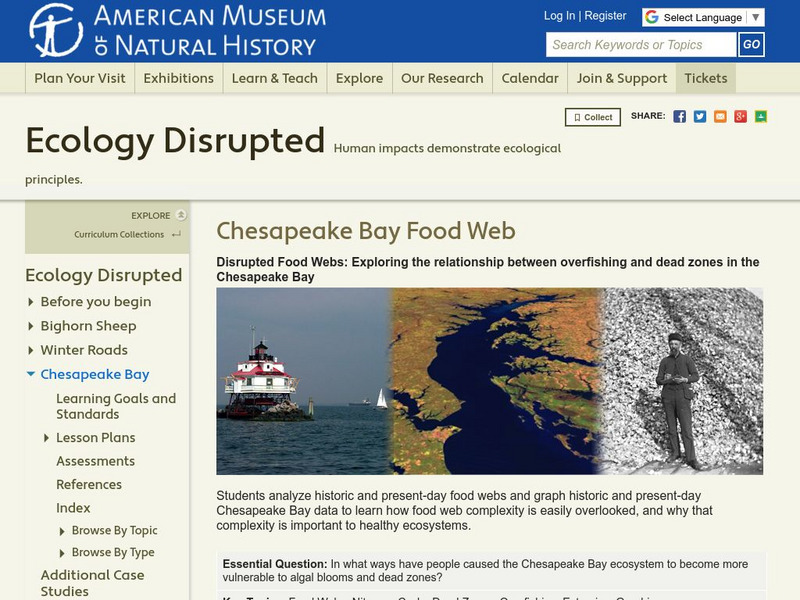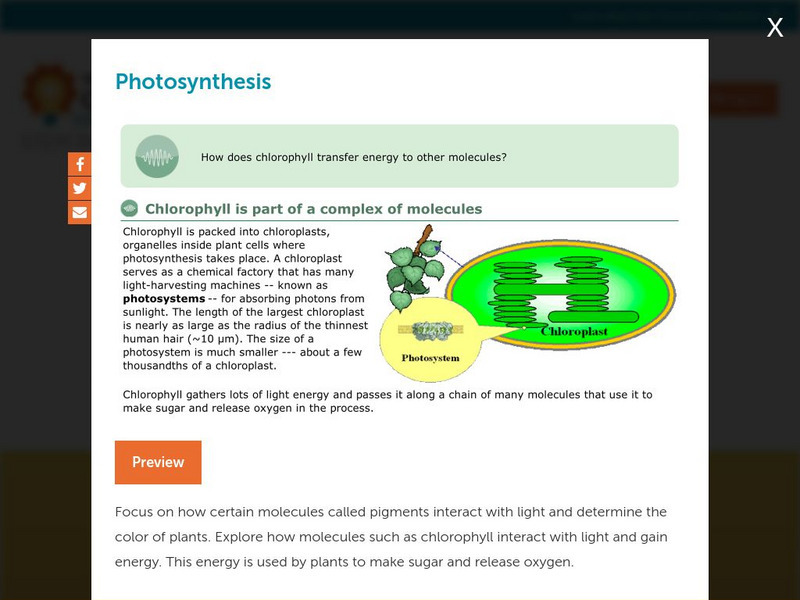Other
Great Lakes Bioenergy Research Ctr.: Exploring Energy Transformations in Plants
This set of lessons has students investigate how plants obtain energy from different sources to support their growth and development. Students conduct investigations, make predictions, and construct scientific explanations of the...
American Museum of Natural History
American Museum of Natural History: Ecology Disrupted: Chesapeake Bay Food Web
In this comprehensive lesson unit, students examine how overfishing has affected Chesapeake Bay's ecosystem. They will study food webs from the past and present and graph related data.
OpenSciEd
Open Sci Ed: 7.4 Matter Cycling & Photosynthesis
This unit on matter cycling and photosynthesis has students investigating the idea that all food comes from plants.
Texas Education Agency
Texas Gateway: Energy and Matter in Ecosystems
Learners analyze food chains, webs, and pyramids to determine how energy flows and matter cycles through ecosystems.
Concord Consortium
Concord Consortium: Plants (Intermediate)
What do plants eat? This unit explores plants and how they make food. (Requires Java)
Concord Consortium
Concord Consortium: Photosynthesis
Focus on how certain molecules called pigments interact with light and determine the color of plants. Explore how molecules such as chlorophyll interact with light and gain energy. This energy is used by plants to make sugar and release...
eSchool Today
E School Today: Introduction to Photosynthesis
Find out about the needs of plants to grow and live.
CK-12 Foundation
Ck 12: Life Science: Producers
[Free Registration/Login may be required to access all resource tools.] Energy is the ability to do work. In organisms, this can be physical work, like walking or jumping, or it can be the work used to carry out the chemical processes in...
CK-12 Foundation
Ck 12: Life Science: Photosynthesis
[Free Registration/Login may be required to access all resource tools.] Plants are producers, which means they are able to make their own food, as well as "food" for other organisms. Plants are also autotrophs - they collect energy from...
CK-12 Foundation
Ck 12: Life Science: Flow of Energy
[Free Registration/Login may be required to access all resource tools.] When an herbivore eats a plant, the energy in the plant tissues is used by the herbivore. Every time energy is transferred from one organism to another, there is a...
CK-12 Foundation
Ck 12: Life Science: Food Chains and Food Webs: Food Webs
[Free Registration/Login may be required to access all resource tools.] Energy must constantly flow through an ecosystem for the system to remain stable. What exactly does this mean? Essentially, it means that organisms must eat other...
The Wonder of Science
The Wonder of Science: Ms Ls1 6: Photosynthesis Matter Cycling and Energy Flow
Work samples, phenomena, assessment templates, and videos that directly address standard MS-LS1-6: photosynthesis - matter cycling and energy flow.
OpenSciEd
Open Sci Ed: Net Logo: Chloroplasts and Food Model
The simulation shows the relationship between the inputs and outputs in the chloroplasts of plant, that can help explain how they convert water and carbon dioxide to glucose and water with the help of energy absorbed from light.












